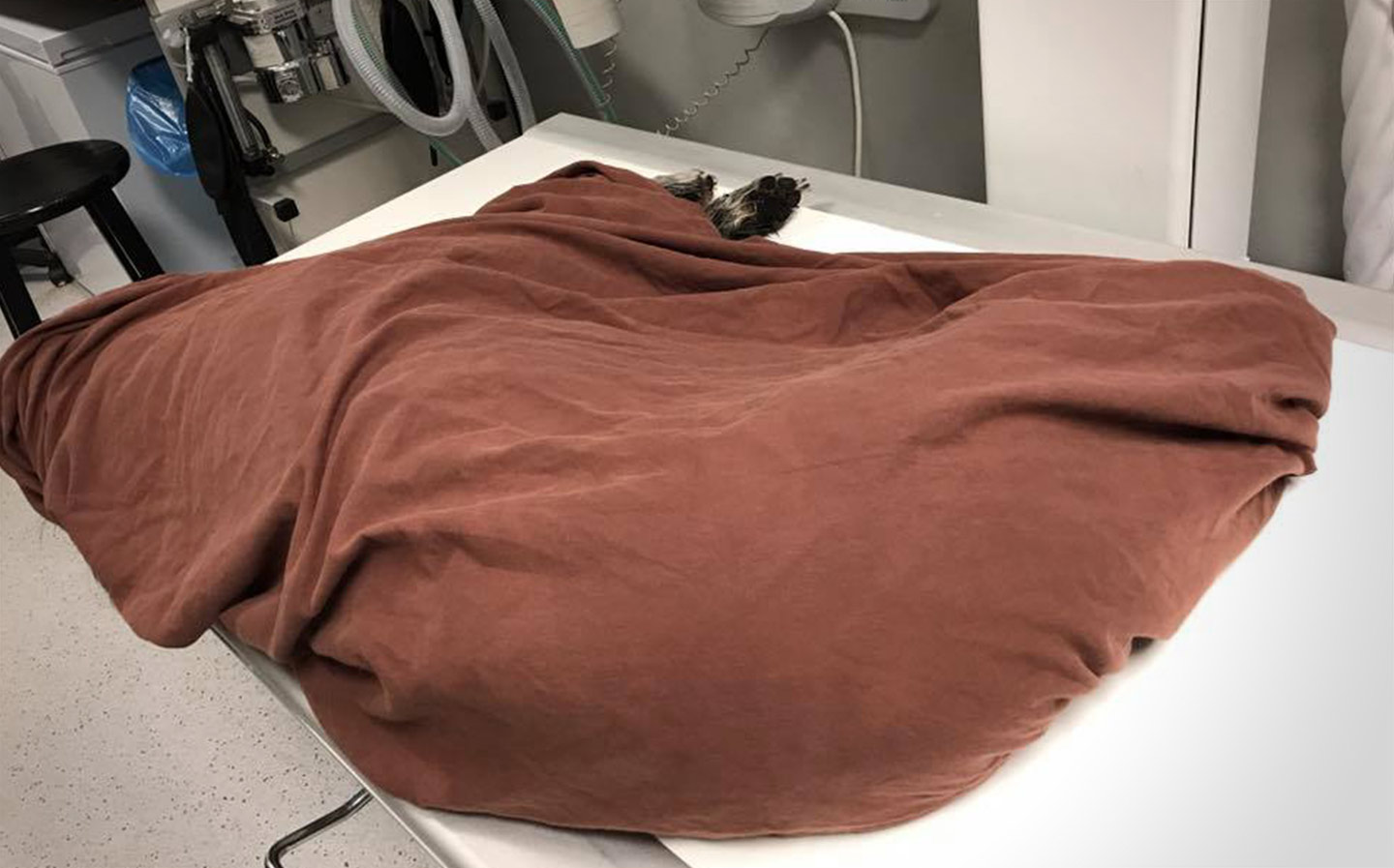'Please stop doing this' — vet's plea to drivers after dog dies in hot car
Under 20 minutes in a hot car can prove fatal to a dog
A CANADIAN vet posted to social media a photo of a dog that had died in a hot car on July 29 and issued the plea, “Please, please stop doing this, people!”
Leah Montgomery, a vet at Shaughnessy Veterinary Hospital in Port Coquitlam, shared the photo on Facebook to remind dog owners of the dangers of leaving their pets in cars.
“We are heart broken,” she wrote. “Such a preventable disaster. Dog left in the car today. Dead. Family is distraught.”
The post was met with sadness, despair and anger, with several commenters calling for the owners to be charged with animal cruelty.
Montgomery called for calm and clarified her position: “Friends, this was posted as a reminder that this CAN HAPPEN – to anyone. They are not ‘bad’ pet people. Take it to heart, remember this, and NEVER let it happen to you. Be careful when you cast stones.”
The RSPCA advises calling 999 if you see an animal in a hot car
The ambient temperature doesn’t have to be particularly warm for a car interior to get dangerously hot. Animal charity the Dogs Trust says that under 20 minutes in a hot car can prove fatal to a dog should its body temperature exceed 41°C. The RSPCA adds that when it’s 22°C outside, in a car it can reach 47°C within an hour.
Browse NEW or USED cars for sale
Both organisations say it’s still very dangerous for dogs even if the windows are left open (Dogs Trust claims this has no significant effect) or the car is parked in the shade.
Stanford University School of Medicine carried out studies showing that if it’s 30°C outside a car interior will quickly reach 60°C, with 80% of the average temperature increase occurring within 30 minutes of the car being parked.
In the summer, temperatures in-land in British Colombia frequently surpass 30°C, according to Destination British Columbia. Nearer the coast, temperatures range from 22 to 28°C.
In the UK, the average temperature for July and August is between 20°C and 22°C.
The RSPCA advises calling 999 if you see an animal in a hot car and displaying signs of heatstroke, as the charity has no power of entry. It says members of the public should not try to break in to a car unless they believe the owner of the property would consent to the damage if they knew the circumstances, otherwise it could be classed as criminal damage. It also recommends taking photos or video footage as evidence.
Sunscreen and 11 other things drivers should not leave in a hot car





